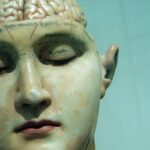### The Role of Testosterone in Maintaining Cognitive Function in Aging Men
As men age, they often experience a decline in testosterone levels, a condition known as andropause or “male menopause.” This natural decrease in testosterone can lead to various physical and mental health issues, including cognitive difficulties. In this article, we will explore the role of testosterone in maintaining cognitive function in aging men and how testosterone replacement therapy (TRT) can help alleviate these issues.
#### What is Testosterone?
Testosterone is a crucial hormone in men that plays a vital role in various physiological functions, such as muscle mass and strength, bone density, and sexual function. It also influences brain function and cognitive abilities.
#### The Impact of Low Testosterone on Cognitive Function
Low testosterone levels in aging men can lead to several cognitive issues, including:
– **Memory Problems:** Difficulty remembering recent events or learning new information.
– **Difficulty Concentrating:** Trouble focusing on tasks or maintaining attention.
– **Decreased Motivation:** Feeling less motivated or less interested in activities.
– **Mood Changes:** Irritability, anxiety, and depression.
These symptoms can significantly affect a man’s quality of life and ability to perform daily tasks.
#### How Testosterone Affects Cognitive Function
Testosterone influences cognitive function by affecting the brain’s neurotransmitters and neurotrophic factors. Here are some key ways testosterone impacts cognitive abilities:
– **Neurotransmitter Modulation:** Testosterone influences the production and function of neurotransmitters like dopamine, serotonin, and GABA, which are essential for mood regulation and cognitive function.
– **Brain-Derived Neurotrophic Factor (BDNF) Stimulation:** Testosterone may stimulate the production of BDNF, a protein crucial for neuronal growth, survival, and synaptic plasticity.
– **Reduction of Inflammation:** Chronic inflammation has been linked to various mental health conditions, and TRT may have anti-inflammatory effects that contribute to improved mental well-being.
#### The Benefits of Testosterone Replacement Therapy (TRT)
TRT involves administering exogenous testosterone through various methods, such as injections, gels, or patches. By replenishing testosterone levels, TRT can address the physical symptoms of hypogonadism and potentially improve cognitive function.
Studies have shown that TRT can significantly improve cognitive function in men with hypogonadism. Here are some benefits:
– **Improved Memory:** TRT may enhance memory by improving the function of neurotransmitters and stimulating BDNF production.
– **Enhanced Attention:** By improving the regulation of neurotransmitters, TRT can help men focus better and maintain attention.
– **Increased Motivation:** By reducing fatigue and improving energy levels, TRT can enhance motivation and overall sense of well-being.
– **Mood Improvement:** TRT has been shown to alleviate depressive symptoms and reduce anxiety in men with hypogonadism.
#### Case Studies and Research
A recent study published in medRxiv found that testosterone replacement therapy improved spatial cognitive ability in men with late-onset hypogonadism (LOH). The study used a maze test to assess spatial navigation ability and found that men with LOH who received TRT for six weeks showed significant improvements in their ability to navigate the maze. This improvement was correlated with the increase in testosterone levels and the reduction in symptoms of aging males’ symptoms scale (AMS) scores[1].
Another study highlighted the mental health benefits of TRT, including improved mood, reduced anxiety, and enhanced cognitive function. The study emphasized that TRT not only addresses physical symptoms but also has a positive impact on mental health by modulating neurotransmitters and reducing inflammation[3].
#### Conclusion
In conclusion, testosterone plays a crucial role in maintaining cognitive function in aging men. Low testosterone levels can lead to various cognitive difficulties, including memory problems, difficulty concentrating, and decreased motivation. Testosterone replacement therapy (TRT) has been shown to improve these symptoms by replenishing testosterone levels, modulating



